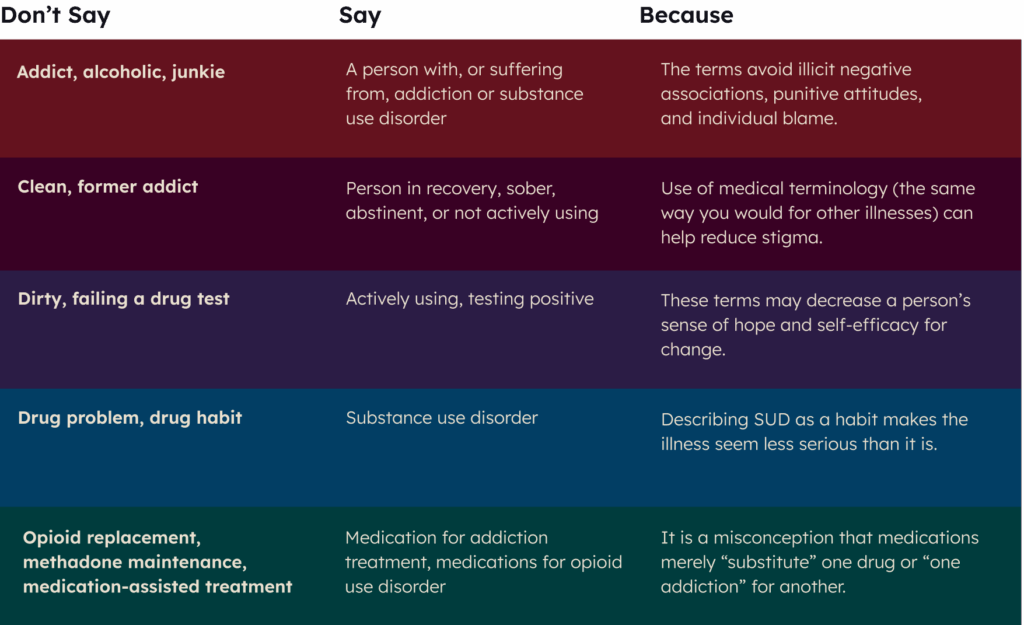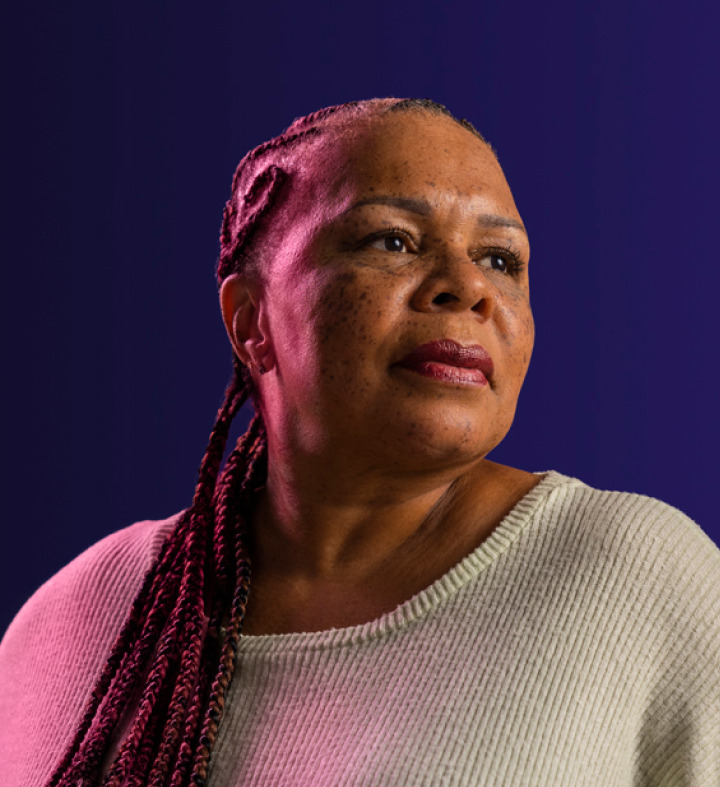Person-First Language
The language we use can impact how we view others and ourselves. Using the wrong words can lower a person’s sense of self-worth and create barriers for those affected by addiction. With the ongoing drug crisis, it’s essential to re-examine the language used around addiction, also known as substance use disorder (SUD).

So What is Person-First Language?
It is the process of acknowledging a person’s value as a human when describing their situation. This is done by using the term “person” and then describing the scenario, situation, or condition that the person is experiencing.
It’s an approach to describe what a person is experiencing, and not defining their entire identity through that situation or condition. Phrases such as “addict,” “junkie,” and “alcoholic” make individuals who are struggling with substance use less likely to seek help. By separating a person’s identity from their situation and saying “person with a substance use disorder” or “person struggling with substance use,” we create a space to acknowledge that the situation or condition can change. We know that addiction is a treatable medical condition, and using person-first language reinforces that fact and can give people hope. Additionally, it’s a way of demonstrating respect and honoring the person for who they are rather than what they might struggle with.

Kyle, In Recovery
Fort Collins, CO
Everyone deserves empathy, so taking this small step can have a meaningful change in someone’s life.
Challenge yourself and others to incorporate person-first language. Above, you’ll see the list of commonly used terms that are outdated and harmful. Accompanying them, you’ll also find the person-first language that should be used instead of the other phrases.
Person-First Language and the Power of Words
Sometimes, individuals suffering from SUD or those in recovery may use certain terms to describe their experience or identity as it relates to addiction, such as describing themselves as an “addict.” Doing so may give them a feeling of ownership or reflect how they feel about their experience. However, their choice to use that word to describe them and/or their experience does not necessarily mean that people who do not have lived experience with SUD can use that term, as it can cause harm and perpetuate stigma.
People who do not have lived experience with a SUD should refrain from calling other people “addicts” and should encourage others without lived experience to do the same. There is no need to ask people who are struggling with SUD or who are in recovery to change how they describe themselves and their experience, so rather than correcting them, we should
emphasize empathy and allow them to speak to their experiences in terms they feel comfortable.
In the context of substance use disorder, stigma is the intentional or unintentional use of terms that create negative stereotypes and emotions around the topic.
It can create shame and can lower a person’s sense of self-worth, especially for those struggling with substance use. It can also negatively impact how others view those struggling with substance use. When we use negative labels, it can invalidate the real struggles that people have and can be dehumanizing. We can shift attitudes and perceptions through the language we choose around substance use disorder, which can let people who are struggling know that there are people who are ready to support them when they decide to seek help for their addiction.

